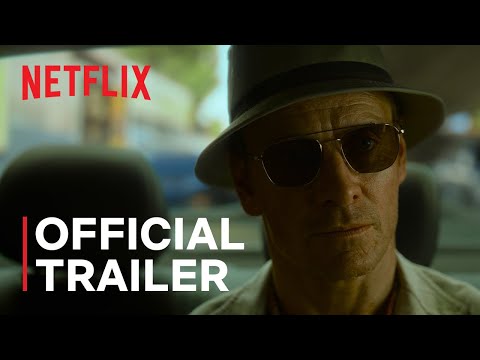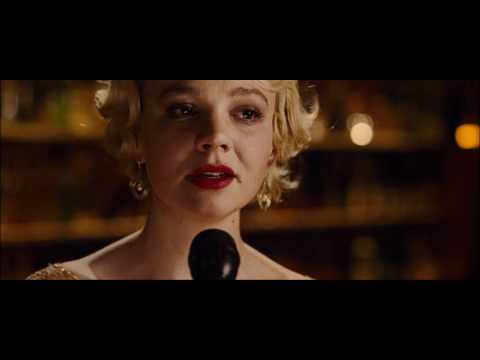David Fincher’s new film, The Killer” is exactly the kind of movie you’d expect the brilliant dark prince of cinema to make once he got “Mank” (2020) out of his system.
Not based on the landmark 1989 John Woo film of the same name (as I incorrectly assumed when the project was announced) but a French 1998 graphic novel by Matz and Luc Jacamon, Fincher is in his element here.
That is if you’re into his trademark, auteur touches of unflinching darkness, immaculate framing and characters drowning in despair and tainted by the evil around them.
In that case, you’re in for a treat.

Michael Fassbender stars as a man known to us only as The Killer, a highly disciplined, empathy-free and wealthy assassin who botches his latest hit. When his employers turn the tables on him and get personal, The Killer goes on a worldwide manhunt to eliminate everyone who has suddenly presented themselves as a threat.
Working once again with “Se7en” screenwriter Andrew Kevin Walker, this is a world of isolation and random acts of violence, with The Killer living a vampiric existence of sleeping, hiding, waiting, eating, waiting some more, then finally striking on his targets.
What is the point of such an existence? Who cares? As long as he sticks to the plan and doesn’t improvise (among the many mantras we hear via Fassbender’s inner monologue providing helpful, if redundant, voiceover).
Fincher’s straightforward storytelling matches the no-nonsense occupational approach of his main character. I have yet to see Fincher’s Netflix series “Mindhunters” and last encountered his work in the personal, out-of-character “Mank.”
As always, there is dark subtext in Fincher’s work and, even at its pulpiest (as with Fincher’s best films), we’re in the headspace of awful people in the most vivid and exploratory way.
Fassbender’s character and performance here, as a man possessed and rotting from within, reminded me of his fearless, wonderful turn in “Shame” (2011). Although we often hear the inner thoughts of The Killer via Fassbender’s ongoing voice over, we see the contrast of his on-the-job concentration with the vulnerability he expresses towards a loved one.

Walker’s sick sense of humor comes across in the identities The Killer uses for each of his stops (20th-century pop culture buffs should recognize it immediately). Otherwise, don’t expect comic relief.
Even Fincher’s “Gone Girl” (2014) is funnier.
“The Killer” has a similar texture to Fincher’s “The Girl with the Dragon Tattoo” (2011), with its slick surfaces, cold landscapes and a scratchy feel to the whole thing. There is a cynicism in how the characters see themselves versus the reality of their existence.
Note how a different killer declares that she’s been good for so long, but is referring to eating healthy and not the business of murdering people professionally.
Fassbender has a chilling scene with Tilda Swinton, as well as a fight scene that is one for the ages. There’s also a great promo for Amazon delivery (among the best uses of product placement to move the plot forward that I’ve seen) and, even when Fincher takes time to slow things down and observe our main character sitting around waiting, the film itself never loses its ability to keep us in its grip.
FAST FACT: David Fincher’s interest in film bloomed at an early age, partly thanks to the influence of a famous neighbor. The future director grew up in San Anselmo, California near “Star Wars” legend George Lucas. Fincher found early work at Lucas’ FX studio Industrial Light & Magic.
Of the missteps, there is one scene that uses voice over that isn’t Fassbender and it doesn’t work. The climactic scene with Arliss Howard as a wealthy businessman also fails to connect as intended.
Despite the subject matter, “The Killer” lacks the concentrated sadism of “Se7en” and the rape content of “The Girl with the Dragon Tattoo.” While Fincher’s latest is as cold hearted as one would expect from Walker as the screenwriter, it’s also always fascinating.
“The Killer” ends abruptly but fittingly – there’s no proper beginning or ending to the life or story of The Killer, just moments.
In the final scene, as much closure as it allows, we’re unsure if we’re exiting the story on a positive note, or if another character will suddenly enter and end things for everyone. Like that final closing shot of “The Sopranos,” we conclude on rejuvenation, the value of family being together, and the horrible uncertainty of any future moment, accept the one we’re living right now.
Mr. Fincher and Mr. Fassbender, welcome back.
Three Stars
The post Fincher’s ‘Killer’ Finds Auteur Back Where He Belongs appeared first on Hollywood in Toto.

0 Comments